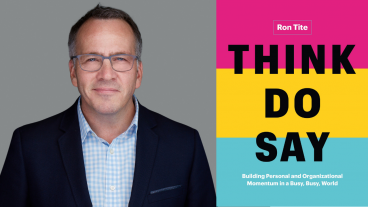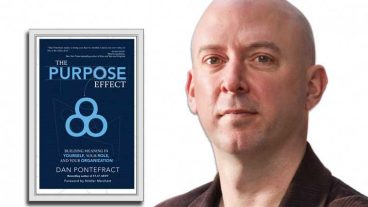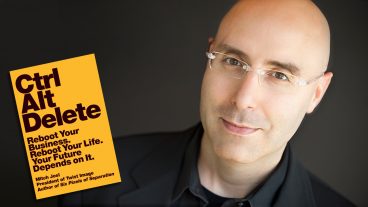Gillette has been getting a lot of attention lately — good, bad, and ugly. Building on their tagline “The Best a Man Can Get”, Gillette recently launched a new video ad campaign called “The Best Men Can Be”. This video urges men to take a more active role in fighting toxic masculinity, showing clips of bullying, sexual harassment, objectification of women, and more, drawing quite a wide spectrum of feedback that ranges from boycotting to celebrating the brand.
We’ve done a round-up of what some of our marketing experts are saying about the campaign, and why, despite what seems like negative backlash, the campaign is actually a huge success.
Marketing, branding, and creativity expert Ron Tite drew on his “Think, Do, Say” philosophy to congratulate Gillette via Twitter on living their values outloud.
There are ads that perfectly communicate believing in something “even if it means sacrificing everything” (to quote another ad).
This is one of those ads. It’s official title shouldn’t surprise you?
We believe: The Best Men Can Be. #ThinkDoSayhttps://t.co/cTsf4YO0GL— ron tite (@rontite) January 16, 2019
He also joined CBC Radio One to discuss the ad in detail and open it up for debate. Listen to the lively conversation below.
Scott Stratten, an expert in UnMarketing, spoke with CBC to provide perspective on what Gillette was trying to achieve.
Scott Stratten, author and marketing expert with UnMarketing, said the ad is “phenomenal” in his estimation, because it does what Gillette wanted it to do: get noticed.
“When was the last time you talked about Gillette?” he said in an interview with CBC News. “Now they are the talk of the town.”
The same article spoke to Scott about a comparable ad campaign run by Nike, which starred NFL quarterback Colin Kaepernick. Kaepernick became a controversial figure when he began kneeling during the US national anthem, and has since been blacklisted from the league. Nike, however, made him the face of their campaign. From the article:
Nike also faced backlash and talk of a boycott after that campaign was launched.
While Nike saw a dip in its share price, Stratten said Nike came back stronger than ever, and he suspected something similar would happen to Gillette in this case.
He said consumers have been demanding more authenticity from brands for years, even if some have become enraged when companies they buy from take a stance they don’t like.
“Because really it’s not that,” Stratten said. “It’s, ‘I can’t believe you took a stance on something I’m misinformed about.'”
Bestselling author of The Purpose Effect Dan Pontefract wrote an article for Forbes diving deep into the campaign to answer the question, is Gillette purpose-driven or purpose-washing?
He first spoke with digital marketing expert Mitch Joel who congratulated Gillette for their attention-grabbing ad.
“Everyone is suddenly talking about Gillette and not Dollar Shave Club or Harry’s. When was the last time you thought of Gillette or mentioned them? Mission accomplished because the mission was for the brand to get a lot of attention.”
Dan then dives into the purpose-driven or purpose-washing debate. Below is a segment of the article, read the whole piece here.
If Gillette were purpose-washing—where it uses the optics of “doing good” in a malevolent way to make a buck—the company wouldn’t possess a prior track record. There are scores of companies who claim to be purpose-driven when in fact they are purpose-washing. They use the concept of “purpose” not to change society, but solely to make a buck.
I don’t see this as the case with Gillette. They possess a track record of being purpose-driven.
Six years ago the company launched a campaign in India titled “Gillette Soldier for Women.” Its goal was not about men turning women into soldiers; rather the company was pushing men to stand up for women. “Because when you respect women,” as the advert insisted, “you respect your nation.” (View the video below.)
Perhaps that was the first salvo into men behaving differently.
In 2017 the company piloted the introduction of Treo, “a high-quality shave to people who need assistance.” Work continues to enhance the product for wide-scale distribution. However, the company won an award at the Cannes Lion Festival in 2017 for its touching tale of Kristian Rex, a New Jersey man tasked with caring for his elderly father. Watch the video. You’ll end up teary-eyed for certain. (View the video below.)
The Treo product was also a finalist in the 2018 Innovation by Design awards.
Several years ago Gillette found ways in which to make their razors affordable to men in the Himalayan region, men who were often injured and bloodied by barbers using rusty and worn-out blades.
The company was also a key sponsor to the Movember movement, ironic as that may be for a company that earns its revenue from people who use its products to shave. (If you’re growing a moustache, presumably you aren’t using a blade as much.)
The critics and naysayers will argue the Gillette marketing department were purpose-washing. The misogynists and crazies like Morgan and Woods—let alone the thousands of men too thick to see society’s need for change—will erroneously boycott the company.
In the end, despite some prior stumbles like the “Shave or Crave” campaign, Gillette has long been trying to act with a purpose-driven mindset.
Did the most recent campaign attract more eyeballs than prior attempts, and possibly enhance sales?
Of course, it did.
Is that a bad thing?
No, not if they are simultaneously trying to improve society. Indeed, Gillette is trying to.




